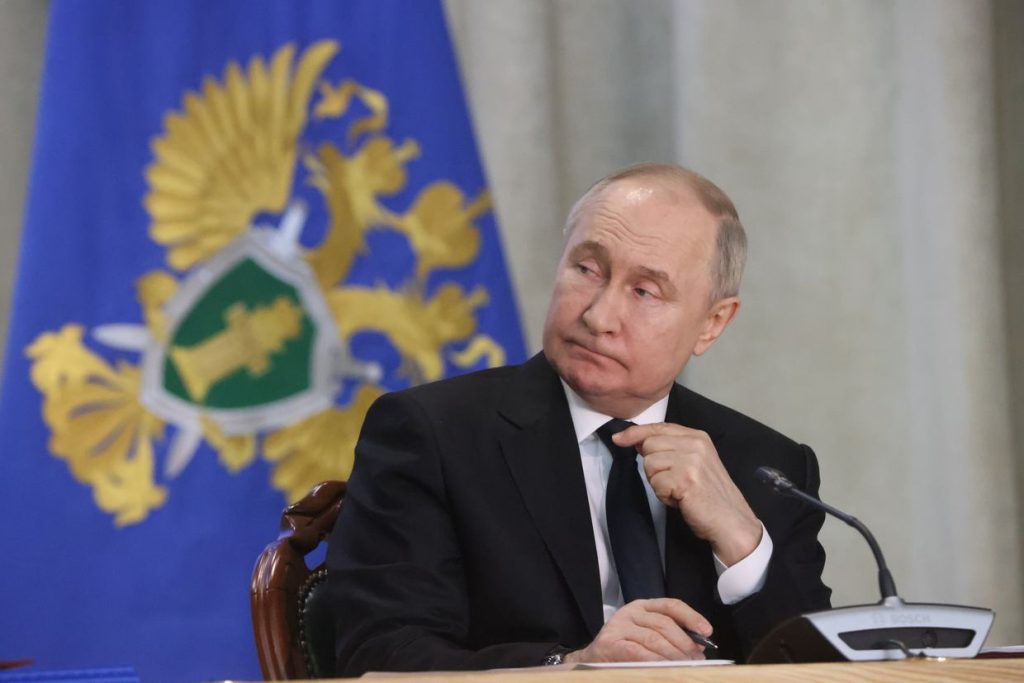Western powers, including the United States and the majority of European Union nations, will not be attending the Kremlin ceremony for Vladimir Putin’s inauguration for another six-year presidential term on May 7. This decision comes amid evidence that the March presidential election, which Putin supposedly won with 87% support, was the most rigged in Russia’s modern history. Estimates of vote rigging range from 22 million to 31.6 million votes, without accounting for online voting and the election in Russian-occupied territories of Ukraine. Russia’s actions in organizing the election in the occupied parts of Ukraine have been condemned as a violation of international law, prompting Ukraine’s Foreign Ministry to urge other countries and international organizations not to recognize the election results or Putin’s legitimacy ahead of the inauguration.
The United Kingdom and Canada have also decided not to send any representatives to attend the ceremony, along with the majority of EU member states. The U.S. will not be sending any representatives to the inauguration, but Washington has stated that it recognizes Putin as Russia’s president, despite the election being deemed neither free nor fair. Close to 20 EU member states are expected to boycott the event, while certain countries like France, Hungary, and Slovakia are anticipated to send representatives. This diverse diplomatic reaction underscores the ongoing differences among Western powers on how to handle the Russian leader, especially in the aftermath of Russia’s invasion of Ukraine.
In addition to the diplomatic tensions surrounding Putin’s inauguration, there is also a case of a U.S. soldier traveling to Russia and being arrested on suspicion of theft. This incident adds to the strained relations between the U.S. and Russia, as there are several U.S. nationals currently being held in Russia on what are believed to be unjust charges. These cases contribute to the overall tense atmosphere between the two countries, further complicating international relations.
Despite the lack of attendance from Western powers, including the U.S. and most EU nations, at Putin’s inauguration, he will continue in his capacity as Russia’s president. This highlights the ongoing recognition of Putin as the legitimate head of state by various countries, even if they do not agree with the circumstances of his election. The refusal to attend the ceremony serves as a symbolic gesture of disapproval towards Putin’s regime and the questionable election process, but it does not change the fact that he remains the leader of Russia.
The differing responses from Western powers towards Putin’s inauguration reflect the complex dynamics of international relations and the ongoing tensions between Russia and the West. The refusal to attend the ceremony is a form of diplomatic protest against Russia’s actions and the lack of democratic processes in its recent election. This signals a unified stance among Western nations in condemning Putin’s regime, while also recognizing the political reality of his continued leadership in Russia.
As the controversy surrounding Putin’s inauguration and the broader issues of U.S.-Russia relations continue to unfold, it remains crucial for independent journalism in Ukraine and other countries to shed light on these complex geopolitical developments. By supporting independent journalism, individuals can contribute to the fight for transparency, accountability, and democracy in the face of authoritarian regimes and violations of international law. Ultimately, the refusal of Western powers to attend Putin’s inauguration signifies a broader struggle for democratic values and human rights in the international arena.


